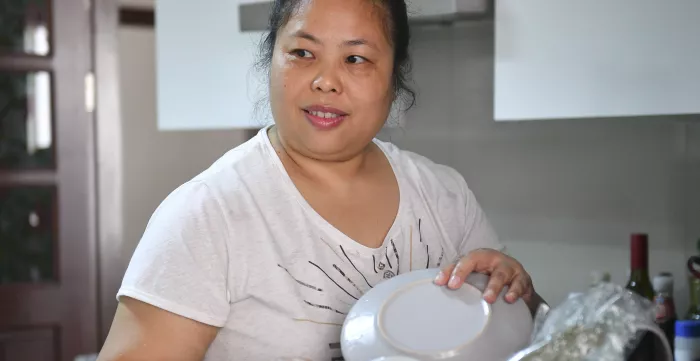Topic portal
Domestic workers
Domestic workers provide essential direct and indirect care services in or for households.
Globally, 75.6 million people, most of them women and many migrants are employed in this sector, representing 4.5 per cent of all workers. Despite their critical role in sustaining families, societies, and economies, domestic workers remain largely undervalued, underprotected, and underrepresented.
In 2021, the ILO found that 81 per cent were informally employed, highlighting persistent legal and enforcement gaps. As demand for care rises due to demographic shifts and declining unpaid care, securing decent work for domestic workers through fair reward, strong legal protections, and meaningful representation is more urgent than ever.
Domestic work is care work, it is high time we make it decent work
How do domestic workers fare in your country?
ILO Brief: Centering Reward and Representation for Domestic Workers in the Care Economy
There is no social justice without decent work for domestic workers
Podcast: Is domestic work care work?
Domestic Workers Convention and Recommendation
News and articles
Op-ed
It’s time to recognize Indonesian domestic workers as essential

Op-ed
On the frontlines of crisis: it’s time to recognize domestic workers as essential
Most recent publications
Fair recruitment
Promising practices for fair recruitment in Hong Kong (China): Promoting fair recruitment of domestic workers: Behavioural insights to...
Brief
Mind the gap: Why women in Pakistan earn less than men and what we can do about it
ILO's work on this topic
-
What's going on in the field?
-
ILO departments and programmes
Contact info
For additional information on the ILO's Domestic Work topic please contact the Inclusive Labour Markets, Wages and Working Conditions Branch at [email protected]